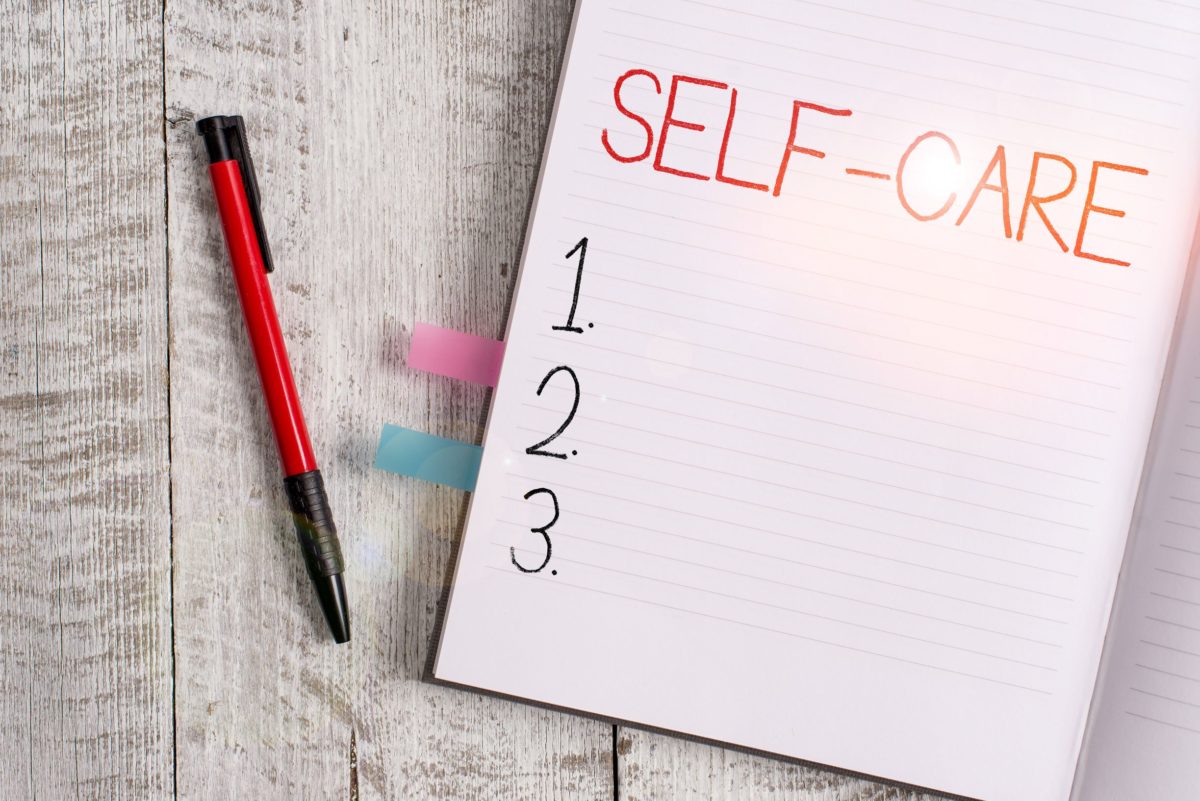A Self Care Checklist for Coping in a Pandemic

We may have settled into a “new normal” amidst the reality of dealing and coping with the novel coronavirus, but it doesn’t mean it’s easy. As if the primary concern of the virus itself wasn’t enough, the ripple effects can make our new normal a painful one. There are the enforced measures in hospitals keeping distance between loved ones, there is the inability to help in the care-taking of a family member in a nursing home, there is the loneliness of isolation, and the fear of contagion, to name just a few of the new struggles that we can be facing during this time. Navigating between managing mental and physical well-being can take a serious toll. Taking care of yourself is essential for your own well being and for your community’s.
Coping with Stress
Stress is a natural and understandable by-product of all the concerns we’re dealing with. It can manifest as fear, anger, anxiety, and the feeling of being overwhelmed. Knowing how to cope with stress in a healthy and productive way is good for not only you but also for your family and friends. Stress causes nervous system changes, makes the heart beat faster and begins a chemical reaction in your body that prepares it for survival. While natural, and what helped our ancestors survive, living in a constant state of stress can cause serious problems.
Mental Health Checklist
The stress and anxiety may feel overwhelming now, but there are methods to help reduce these feelings and to take care of your mental health in healthy ways that promote good mental health hygiene. Here are some practices that might be helpful for you in this stressful time:
- Ask for help if you or someone you know is at risk for suicide, domestic abuse, child abuse, sexual assault.
- Find a mental health provider that can meet virtually.
- Take a break from the news cycle. A constant onslaught of news can be fatiguing and increase anxiety.
- When you do watch or read the news, make sure it is fact-checked and not sensationalized. Disinformation can cause undue panic.
- Meditate or practice yoga to check in with your body. Notice what you feel, and accept it.
- Connect with others. This can be difficult in our socially distanced world but connect and maintain social connections by phone, mail, and social media.
- Set and maintain a schedule for yourself at home.
- Listen to music. There is a psychological and physiological benefit to listening to music as a tool in stress reduction.
- Arts and crafts can be a creative and meditative outlet.
- Journaling or creative writing can be an exploration of your current experience, and help process it.
Physical Health Checklist
Taking care of your body is essential to feeling good, and in maximizing your body’s ability to have the most optimal immune response to viral infections. While it can be difficult to sort out a new routine with gym closures and non-essential business closures, it isn’t impossible to find ways to take care of our physical health. Here are a few things we can do to promote physical well being:
- Eat well-balanced, nutritional meals, and drink plenty of water to keep hydrated.
- Exercise regularly. Regular exercise helps reduce the risk of disease, helps maintain a healthy weight, and can be a much-needed mood booster.
- Get plenty of sleep. Our sleep schedules may have been interrupted but establishing and maintaining a sleep cycle 7-8 hours long where restful REM sleep is reached is vital for good health.
- Avoid as much as possible alcohol, tobacco, and other drugs which can lead to destructive coping habits.
- Spend time outside. Getting fresh air, and being outside in the sunlight are positive attributes that can improve overall health. Go for a socially distanced walk or run outdoors.
- Garden. Even if the only option is indoor gardening, there are the options of a flower bed, herbs, or trying your hand and growing your own produce.
Everyone reacts differently to stressors. Methods that help alleviate stress for some won’t work for everyone. We have to keep trying until we find healthy and positive ways to manage what we can with the tools we have at our disposal. Self-care during these trying times is what will ensure long term healing and is essential in helping us eventually get back to normal. If you are struggling, be gentle with yourself and remember that we are in unprecedented times, and it’s okay to feel whatever you feel.
Contact the BIOClean Team today for additional help or resources in these difficult times. We are here in whatever capacity we can be to help.
